
Philip Kindred Dick, often referred to by his initials PKD, was an American science fiction writer. He wrote 44 novels and about 121 short stories, most of which appeared in science fiction magazines during his lifetime. His fiction explored varied philosophical and social questions such as the nature of reality, perception, human nature, and identity, and commonly featured characters struggling against elements such as alternate realities, illusory environments, monopolistic corporations, drug abuse, authoritarian governments, and altered states of consciousness. He is considered one of the most important figures in 20th century science fiction.

Timothy Thomas Powers is an American science fiction and fantasy author. His first major novel was The Drawing of the Dark (1979), but the novel that earned him wide praise was The Anubis Gates (1983), which won the Philip K. Dick Award, and has since been published in many other languages. His other written work include Dinner at Deviant's Palace (1985), Last Call (1992), Expiration Date (1996), Earthquake Weather (1997), Declare (2000), and Three Days to Never (2006). Powers has won the World Fantasy Award twice for his critically acclaimed novels Last Call and Declare. His 1987 novel On Stranger Tides served as inspiration for the Monkey Island franchise of video games and was optioned for the fourth Pirates of the Caribbean film.

Gregory Dale Bear was an American writer and illustrator best known for science fiction. His work covered themes of galactic conflict, parallel universes, consciousness and cultural practices, and accelerated evolution. His last work was the 2021 novel The Unfinished Land. Greg Bear wrote over 50 books in total.
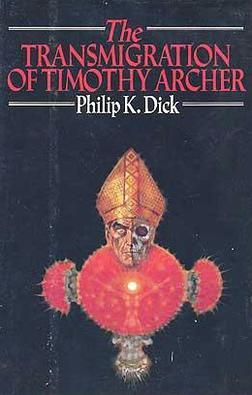
The Transmigration of Timothy Archer is a 1982 novel by American writer Philip K. Dick. As his final work, the book was published shortly after his death in March 1982, although it was written the previous year.

Joe William Haldeman is an American science fiction author.
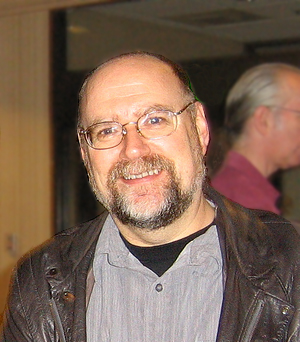
Robert Charles Wilson is an American-Canadian science fiction author.
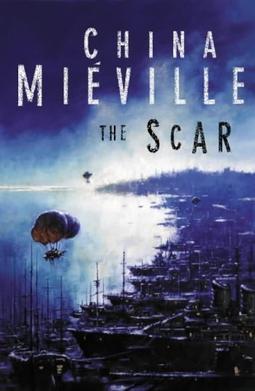
The Scar is a weird fantasy novel by British writer China Miéville, the second set in his Bas-Lag universe. The Scar won the 2003 British Fantasy Award and was shortlisted for the 2003 Arthur C. Clarke Award. The Scar was additionally nominated for the Philip K. Dick Award in 2002 and the Hugo Award for Best Novel in 2003. It is set directly after the events described in Perdido Street Station.

Peter Francis Straub was an American novelist and poet. He had success with several horror and supernatural fiction novels, among them Julia (1975), Ghost Story (1979) and The Talisman (1984), the latter co-written with Stephen King. He explored the mystery genre with the Blue Rose trilogy, consisting of Koko (1988), Mystery (1990) and The Throat (1993). He fused the supernatural with crime fiction in Lost Boy, Lost Girl (2003) and the related In the Night Room (2004). For the Library of America, he edited the volume H. P. Lovecraft: Tales and the anthology American Fantastic Tales. Straub received such literary honors as the Bram Stoker Award, World Fantasy Award, and International Horror Guild Award.

Christopher Mackenzie Priest was a British novelist and science fiction writer. His works include Fugue for a Darkening Island, The Inverted World, The Affirmation, The Glamour, The Prestige, and The Separation.
Michael Lawson Bishop was an American author. Over five decades and in more than thirty books, he created what has been called a "body of work that stands among the most admired and influential in modern science fiction and fantasy literature."

Black House is a horror novel by American writers Stephen King and Peter Straub. Published in 2001, it is the sequel to The Talisman. This is one of King's numerous novels, such as Hearts in Atlantis and Insomnia, which tie in with the Dark Tower series. Black House was nominated for the Bram Stoker Award for Best Novel.

Ian McDonald is a British science fiction novelist, living in Belfast. His themes include nanotechnology, postcyberpunk settings, and the impact of rapid social and technological change on non-Western societies.

Jeffrey Ford is an American writer in the fantastic genre tradition, although his works have spanned genres including fantasy, science fiction and mystery. His work is characterized by a sweeping imaginative power, humor, literary allusion, and a fascination with tales told within tales. He is a graduate of Binghamton University, where he studied with the novelist John Gardner.
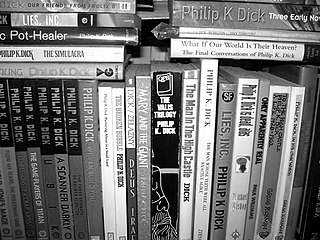
The bibliography of Philip K. Dick includes 44 novels, 121 short stories, and 14 short story collections published by American science fiction author Philip K. Dick during his lifetime.

Justina Robson is a science fiction author from Leeds, England.
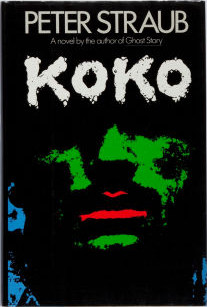
Koko is a horror-mystery novel by American writer Peter Straub, first published in the United States in 1988 by EP Dutton, and in Great Britain by Viking. It was the winner of the World Fantasy Award for Best Novel in 1989.
Lisa Morton is an American horror author and screenwriter.

Pyr was the science fiction and fantasy imprint of Prometheus Books, launched in March 2005 with the publication of John Meaney's Paradox. In November 2018 it was sold to Start Publishing.

Mystery is a 1990 novel by American author Peter Straub, the second installment in Straub's loosely connected "Blue Rose Trilogy". The novel falls into the genre of crime fiction, and was preceded by Koko and followed by The Throat. The book was published by Dutton, won the 1993 Bram Stoker Award and was a 1994 WFA nominee
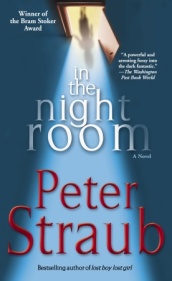
In the Night Room is a 2004 horror-thriller novel by American author Peter Straub, a sequel to his 2003 book Lost Boy, Lost Girl. The work was first published in hardback on October 26, 2004 through Random House and it won the 2004 Bram Stoker Award for Novel. Straub encountered some difficulties while writing In the Night Room and had written several different passages for the work before growing bored with each version before writing it using the same technique he used for its predecessor in which he "reached down inside the book and turned it inside out."


















